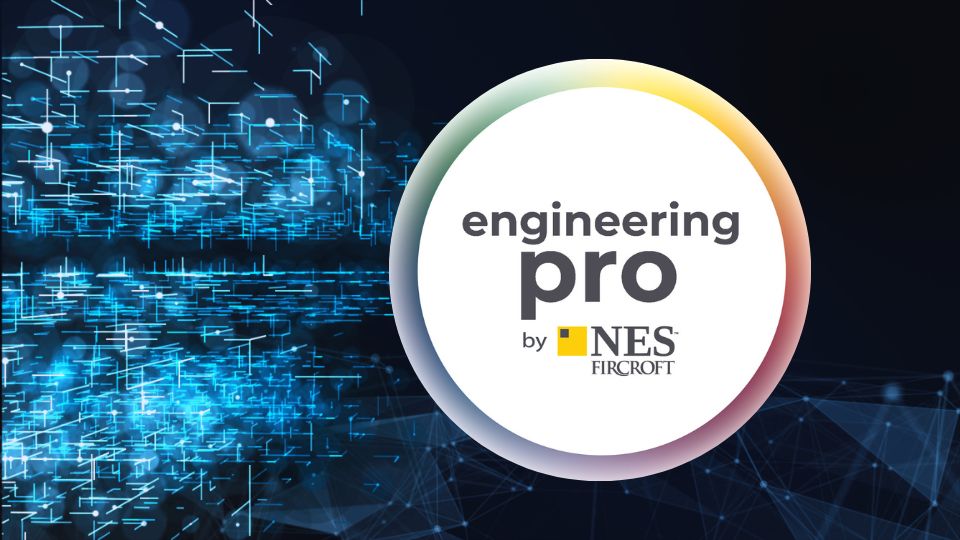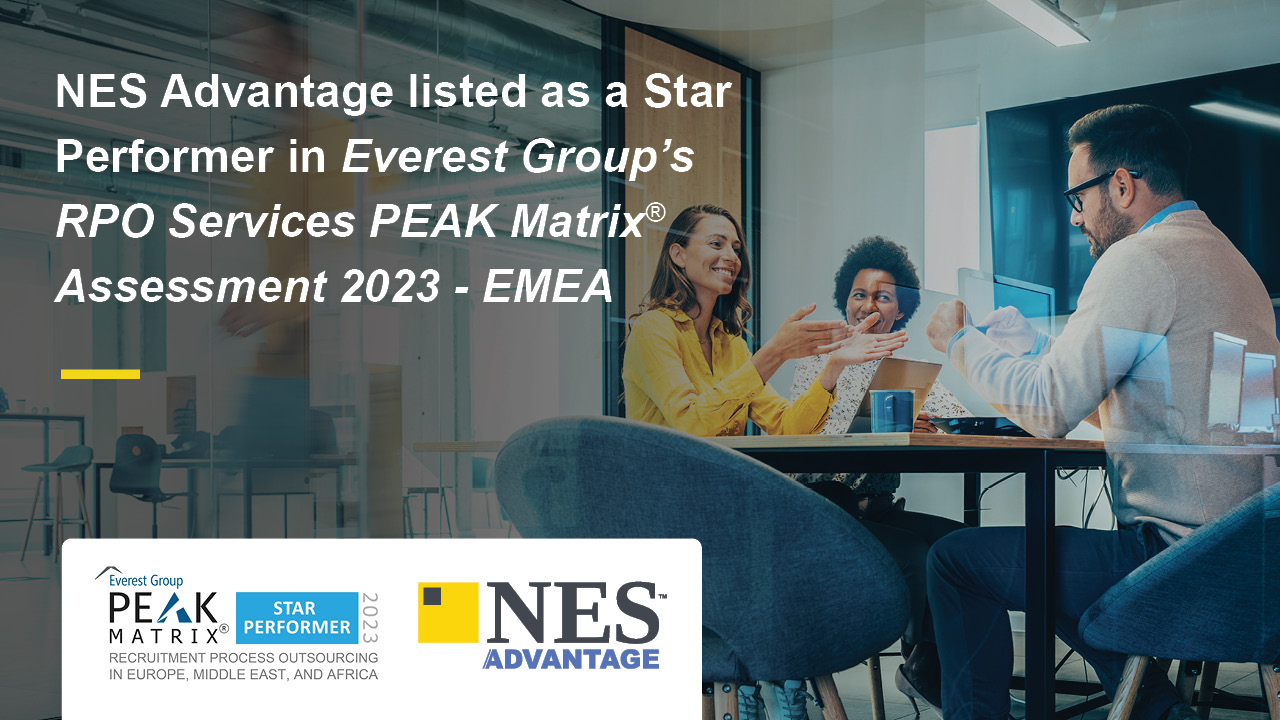How can companies embrace AI technology to future-proof their talent acquisition and recruitment strategy?
29 Feb, 202411:21The technology behind talent acquisition is evolving. Artificial intelligence (AI) is being ...

The technology behind talent acquisition is evolving. Artificial intelligence (AI) is being rapidly implemented into acquisition and recruitment solutions, driven by the developments in ChatGPT and other tools.
While the fundamentals of recruitment are a human-to-human process, developers and software companies are using AI to enhance, simplify and automate processes across their product lines, which in turn are providing actual cost and time benefits to recruiters through background tasks and admin. But how can companies leverage AI to put them ahead of the curve in finding the right talent?
The impact of AI on the recruitment industry
AI has revolutionised various industries, and talent acquisition is no exception. By automating long or repetitive tasks and providing data-driven insights, AI has the potential to streamline and optimise every step of the talent acquisition journey.
One of the significant impacts of AI in talent acquisition is the ability to analyse vast amounts of data in a fraction of the time it would take a human recruiter. Traditionally, a huge part of a recruiter's role is to analyse cover letters and CVs, look for the correct information in a wide range of data, identify suitable candidates accordingly, record them, and then present them to clients for hire.
AI-powered tools can speed up this process by efficiently sifting through resumes and identifying the best match for a position - they can even predict a candidate's likelihood of success in a role. This saves time, ensures a higher quality of hires, and allows recruiters to make more informed decisions.
Additionally, AI that has been correctly trained can help remove unconscious bias from the recruitment process, promoting diversity and inclusion within organisations. AI algorithms can shift focus to a candidate's skills and qualifications rather than their gender, race, or other potentially bias-inducing factors. By relying on objective data and metrics, AI technology can help create a fair and inclusive hiring process.
AI can improve the candidate experience by leveraging chatbots for engagement and support. Chatbots can respond instantly to candidate inquiries, schedule interviews, and assist with onboarding procedures. This level of responsiveness and efficiency enhances the candidate experience and frees recruiters' time to focus on more strategic tasks.
Another significant benefit of AI technology in talent acquisition is the ability to harness data analytics and predictive modelling. AI algorithms can identify trends and predict future hiring needs by analysing historical data and patterns. This enables companies to proactively plan their recruitment strategies and identify potential skill gaps in advance. By leveraging predictive modelling, companies can make data-driven decisions and ensure a more efficient hiring process.
AI tools for screening and shortlisting candidates
AI-powered tools have transformed the way companies screen and shortlist candidates. Traditional methods of manually reviewing CVs and applications have become time-consuming and inefficient. AI technology offers a more streamlined and accurate approach.
One such AI process is CV parsing, which extracts relevant information from CVs and resumes and automatically populates applicant tracking systems (ATS). CV parsing tools use natural language processing (NLP) algorithms to analyse resumes and extract important details such as education, work experience, and skills. This eliminates manual data entry and allows recruiters to assess candidate qualifications quickly.
Another AI function used for screening and shortlisting candidates is sentiment analysis. This technology analyses written communication, such as cover letters or application responses, to determine the candidate's sentiment and emotional state. Sentiment analysis helps recruiters gain insights into a candidate's attitude, passion, and overall fit for the company culture.
In addition to resume parsing and sentiment analysis, AI-powered tools utilise machine learning algorithms to match candidates with job requirements. These tools analyse job descriptions and candidate profiles to identify the best fit based on skills, experience, and qualifications. This automated matching process saves recruiters time and ensures that only the most qualified candidates are considered for further evaluation.
While there are some standalone AI tools that recruiters can use to assist in shortlisting, recruitment CMS platforms that include ATS tools are also starting to have AI in their packages, meaning recruiters can often implement AI into existing workflows.
AI-powered interview and assessment techniques
AI technology has transformed the way companies conduct interviews and assessments.
One popular AI-powered interview technique is video interviewing. Video interviews allow companies to assess candidates remotely, saving time and resources typically associated with scheduling and conducting in-person interviews. AI algorithms can analyse facial expressions, tone of voice, and body language to assess a candidate's confidence level, communication skills, and cultural fit. While this still does not replace the value of a face-to-face interview, using AI-based video interviews as an intermediate step between a CV – or replace a CV entirely – and an in-person interview, which may be costly or time-consuming if a client is in a remote location or planning to interview many candidates.
Similarly, AI technology has made significant advancements in assessment techniques. Online assessments powered by AI algorithms can evaluate candidates' cognitive abilities, problem-solving skills, and job-related knowledge. By analysing candidates' responses and behaviours, AI algorithms generate insights that help recruiters make more informed decisions.
Leveraging chatbots for candidate engagement and support
In today's digital age, candidate engagement and support play a crucial role in talent acquisition. AI-powered chatbots have emerged as valuable tools for instant responses, personalised interactions, and candidate support throughout the recruitment journey. And while a chatbot cannot replace an actual recruiter working with a candidate, they are beneficial for quick tasks and feedback.
Chatbots can be integrated into company websites or recruitment platforms, allowing candidates to ask questions, seek clarification, and receive real-time updates. These chatbots are programmed to understand natural language and provide accurate responses, making the candidate experience more engaging and efficient.
Additionally, chatbots can assist with scheduling interviews, sending reminders, and providing feedback. This level of automation saves recruiters time and ensures that candidates receive timely and relevant information.
Data analytics and predictive modelling in talent acquisition
Data analytics and predictive modelling have become integral parts of talent acquisition strategies. AI technology enables companies to collect and analyse vast data, allowing for data-driven decision-making and strategic planning.
By analysing historical data, companies can identify patterns, trends, and correlations that can help predict future hiring needs. Predictive modelling techniques leverage AI algorithms to forecast talent demand, identify potential skill gaps, and develop proactive recruitment strategies. This allows companies to stay ahead of the curve and ensure a continuous pipeline of qualified candidates.
Furthermore, data analytics can help measure recruitment campaign effectiveness and identify improvement areas. Companies can optimise their recruitment strategies and allocate resources more efficiently by analysing recruitment metrics such as time-to-hire, cost-per-hire, and quality-of-hire.
Ethical considerations in AI-driven recruitment
While AI technology offers numerous benefits for talent acquisition, it is essential to consider the ethical implications and potential biases associated with its implementation.
One of the primary concerns in AI-driven recruitment is algorithmic bias. AI algorithms are only as unbiased as the data they are trained on. If the training data contains biases, such as gender or racial biases, the AI algorithms will replicate and reinforce these biases in the recruitment process. This can result in unfair and discriminatory practices.
To mitigate algorithmic bias, companies must ensure that the training data used for AI algorithms is diverse, representative, and free from biases. Regular audits and monitoring of AI systems are necessary to identify and address these potential problems.
The protection of candidate privacy and data security is also an important consideration. AI technology relies on collecting and analysing vast amounts of candidate data, including personal information and sensitive data. Companies must establish robust data protection measures and ensure compliance with data privacy regulations to safeguard candidate information.
Overcoming challenges in implementing AI technology in talent acquisition
While the benefits of AI technology in talent acquisition are undeniable, there are challenges that companies may face when implementing AI-driven solutions; .
- Job Security Concerns - AI technology automates specific tasks traditionally performed by human recruiters, which can lead to concerns about job security. To overcome this challenge, companies can enhance their recruitment capabilities by equipping HR professionals with the necessary skills to leverage AI technology and create new roles that complement AI-driven solutions.
- Implementation Challenges - integrating AI technology into existing recruitment processes and systems can be complex, requiring collaboration between HR, IT, and other relevant stakeholders. Companies must have a clear implementation plan, provide adequate training and support, and continuously monitor and evaluate the performance of AI-driven solutions to ensure successful integration.
- Training and Development - Training They should be familiar with the AI tools and platforms used in talent acquisition and possess the skills to interpret and analyse AI-generated insights. Training should also focus on ethical considerations, bias mitigation, and data privacy to ensure responsible and fair use of AI technology. By understanding the tools and learning more about data analytics, recruiters can embrace AI's power, automate repetitive processes, and ultimately free them up to focus on the most essential part of their role – speaking to clients and candidates directly.
Conclusion: The future of AI in talent acquisition and recruitment
AI technology is a powerful solution for companies looking to future-proof talent acquisition and recruitment strategy. By embracing AI, companies can streamline and optimise their recruitment processes, save time and resources, promote diversity and inclusion, and make data-driven decisions.
However, the successful implementation of AI in talent acquisition requires careful planning, overcoming challenges, and upskilling HR professionals. Ethical considerations must also be considered to ensure fairness and respect for candidates' rights.
AI's talent acquisition and recruitment role will only grow as technology advances. Companies that embrace AI technology and adapt to the changing landscape will gain a competitive edge and attract top talent in an increasingly competitive job market.
NES Fircroft uses the most up-to-date acquisition tools and resources to find the right candidates for a role. We are at the cutting edge of technology, data security, employee engagement and training. Our highly specialised and experienced recruiters combine industry knowledge with ongoing training and development to increase the volume and quality of talent, reduce hiring time, and drive retention.
Talk to us today to learn how NES Fircroft can take your talent acquisition to the next level.












